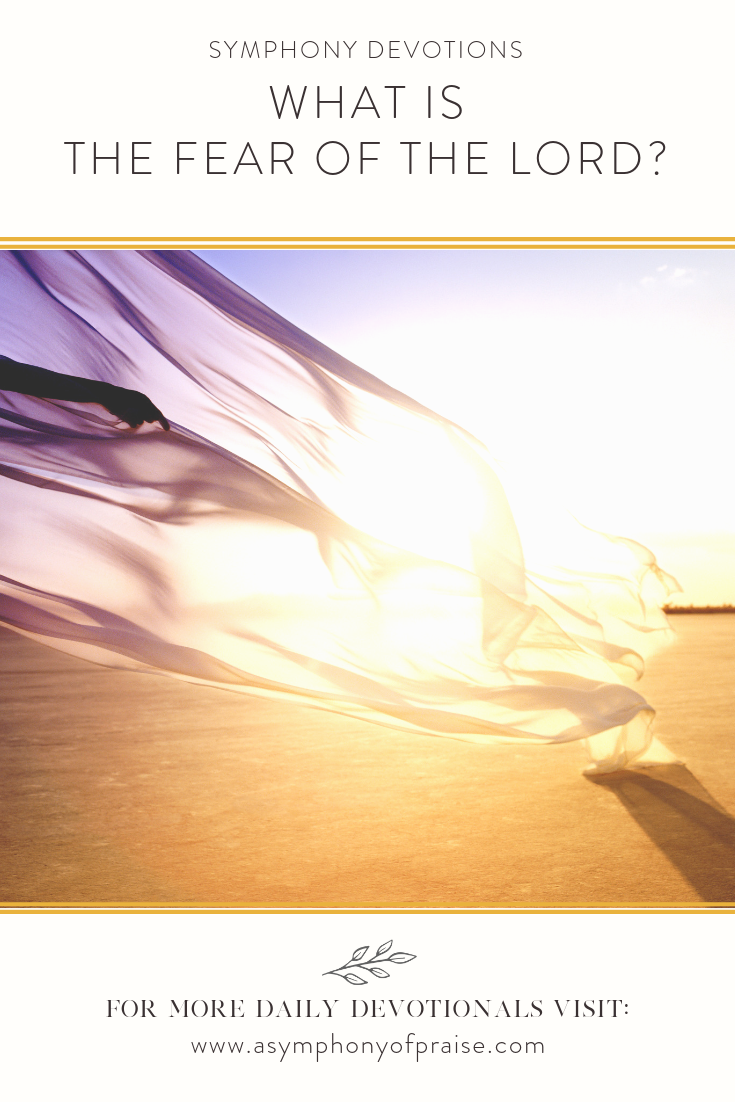What Is the "Fear of the Lord"?
“And his delight shall be in the fear of the LORD. He shall not judge by what his eyes see, or decide disputes by what his ears hear, but with righteousness he shall judge the poor, and decide with equity for the meek of the earth; and he shall strike the earth with the rod of his mouth, and with the breath of his lips he shall kill the wicked. Righteousness shall be the belt of his waist, and faithfulness the belt of his loins.”
Isaiah 11:3-5 ESV
As a child, I used to feel a deep dread whenever a preacher thundered, “You’d better fear the Lord!” With fire and brimstone in his voice, he seemed to scare the life out of us kids, while the adults nodded solemnly in agreement.
I didn’t understand what “the fear of the Lord” truly meant. Instead, I developed a terror of God, convinced He was waiting to smite me at every wrong turn. I internalized those fiery sermons and carried around an image of God as harsh and unrelenting.
I certainly “feared” Him—but not in the way the Bible teaches. It wasn’t until I grew older and dug into Scripture for myself that I began to understand what it truly means to fear the Lord—and how deeply flawed my childhood understanding had been.
STUDY the Word.
In Isaiah 11:3-5, the prophet builds upon the description of the rod from Jesse’s stem, the Branch destined to become our Savior, which he introduced in verse 1.
In verse 3, we’re told that Jesus’ delight will be in the fear of the Lord. Isn’t that amazing? His joy is in honoring and revering His Father. And unlike human judges, who are often swayed by appearance, gossip, false evidence, or the ever-changing standards of the world, Jesus judges with perfect righteousness. What a comfort to know that our perfect Judge is fair and unwavering in all His ways!
Then look at verse 5—it tells us that He will be clothed in righteousness and faithfulness. Does that bring your mind to the Armor of God? Paul, in Ephesians 6, draws from this very picture in Isaiah. When we put on the Armor of God, we aren’t just suiting up for spiritual battles—we’re actually putting on Christ Himself! His righteousness, His faithfulness, His truth become ours as we stand firm in Him.
APPLY the Word.
The fear of the Lord can be tricky to understand because we often associate fear with unpleasant emotions like terror, panic, or dread.
However, the Hebrew word yir’âh carries a different meaning—reverence. Throughout Scripture, the fear of the Lord represents a deep, healthy, and awe-filled respect for God. To fear the Lord is to recognize and honor His majesty, power, and unmatched greatness.
It’s not about being frightened or living in constant fear and condemnation. Instead, fearing the Lord means holding Him in the highest place in our lives—living with a reverence that shapes how we think, act, and worship.
LIVE the Word.
My friend, we serve a righteous Judge—one who is perfect in all His ways. He doesn’t need to be viewed with fear or terror, as I once saw Him as a child. Instead, He invites us to approach Him with overwhelming reverence, awe, and love.
May we put Him on, clothe ourselves in His righteousness and faithfulness, and surround our lives with His presence. In Him, we find our strength, our peace, and our hope.

